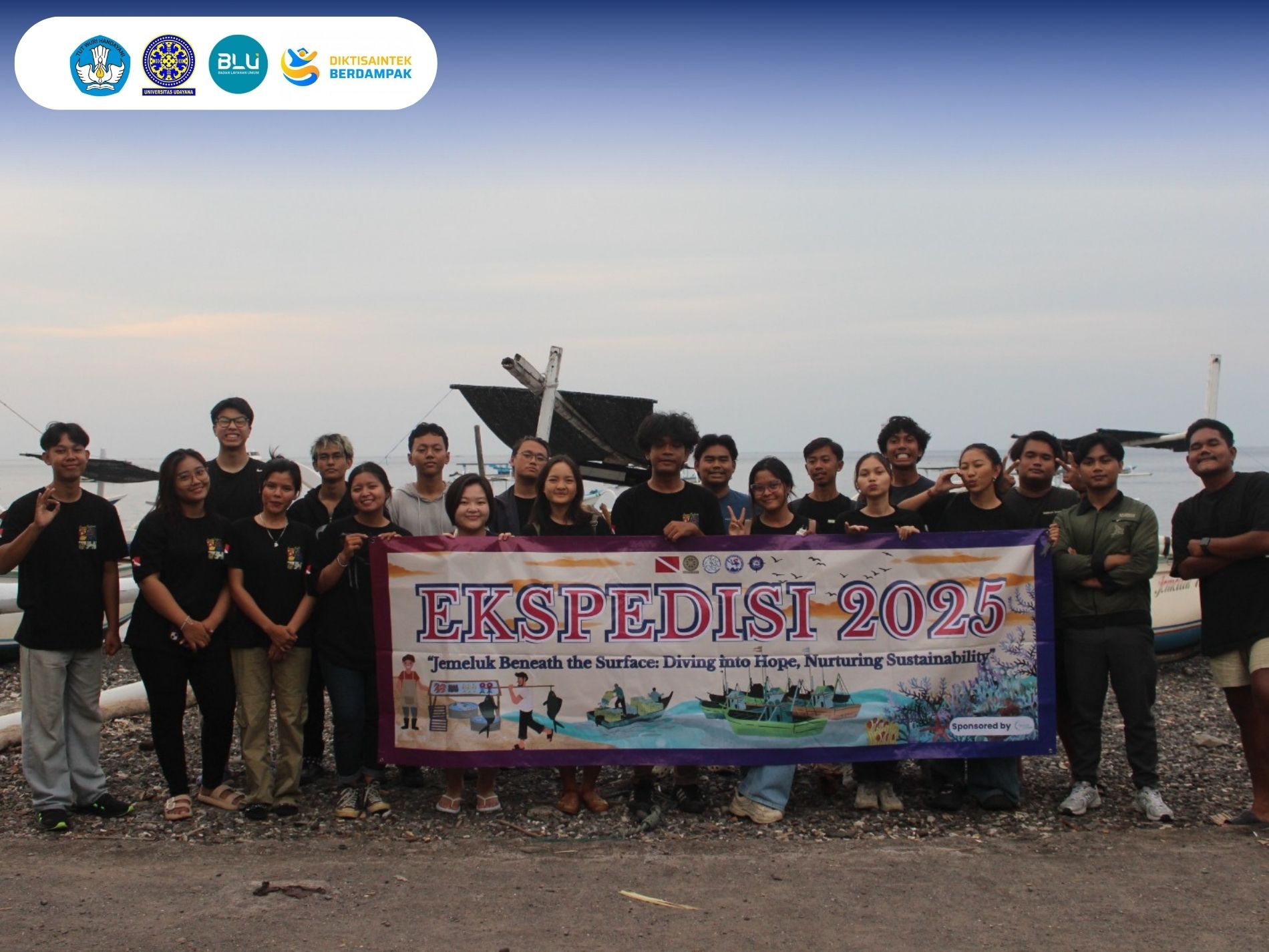BASIC Udayana Expedition Unveils the Mystery Behind Coral Differences in Jemeluk Bay: Toward Ecological and Socio-Economic Solutions for Sustainable Marine Tourism
The BASIC UDAYANA Expedition 2025, an annual flagship program of the Baruna Scientific Diving Club (BASIC UDAYANA), Faculty of Marine and Fisheries, Udayana University, has been successfully conducted under the theme “Jemeluk Beneath the Surface: Diving into Hope, Nurturing Sustainability.”
This series of activities focused on marine ecological and socio-economic studies in Jemeluk Bay, Amed, Karangasem, Bali, and was implemented in an integrated manner from the preparation stage through the dissemination of results, spanning July to December 2025. The main objective of the expedition was to assess the coral reef ecosystem conditions and analyze the socio-economic profile of the local community, particularly in understanding the causes of significant differences in coral cover percentages between the eastern and western parts of Jemeluk Bay.
The core field activities were carried out in October 2025, covering three major components. On October 4, 2025, the team conducted geographical data collection through drone-based remote sensing and field surveys. This was followed on October 5, 2025, by ecological data collection, focusing on water quality parameters such as temperature, salinity, nitrate, and phosphate, as well as coral cover assessments using the Underwater Photo Transect (UPT) method. Subsequently, on October 12, 2025, socio-economic surveys were conducted through interviews with local residents and tourists in the Jemeluk Bay area.
The expedition was led by Charisteas Amazone Girsang as Project Leader and supervised by Ivannov Putra Joshua Napitupulu as Project Coordinator, with full support from the Faculty of Marine and Fisheries, Udayana University.
As a tangible follow-up action, the BASIC UDAYANA team carried out a coral transplantation activity on October 25, 2025, at the BASIC Jemeluk Bay Site using the MARRS (spider-web) method. This initiative represents a real contribution of students toward marine ecosystem restoration and highlights the educational value of the expedition through direct conservation engagement.
The expedition also received strong community support from Mr. Nengah Suanda, Head of Purwa Kerthi Village, who expressed his appreciation for the collaboration between students and the local community.
“I hope this activity brings benefits to all layers of society and strengthens the bond between Udayana University and our village,” said Mr. Suanda in September 2025.
The study revealed that coral cover in both the eastern and western parts of Jemeluk Bay falls under the ‘severely damaged’ category, indicating an urgent need for sustainable marine environmental management strategies. Socio-economic findings showed that 55.56% of respondents had a steady income above IDR 2,000,000, and 88.9% perceived the coral reef condition as fairly good. Interestingly, respondents with higher incomes tended to be less aware of ecological degradation—suggesting that economic stability may reduce environmental concern even though their livelihoods depend on marine ecosystems.
The results of the expedition were disseminated through presentations, public discussions, and a documentary video, serving as valuable resources for future conservation programs. Through this initiative, BASIC UDAYANA reaffirms its commitment to integrating scientific research with community-based action to promote marine conservation and sustainable coastal tourism in Indonesia.
📍 Location: Jemeluk Bay, Amed, Karangasem, Bali
📅 Activity Period: July – December 2025
👥 Organizer: Baruna Scientific Diving Club (BASIC UDAYANA)
🎯 Theme: Jemeluk Beneath the Surface: Diving into Hope, Nurturing Sustainability


.jpg)
UDAYANA UNIVERSITY